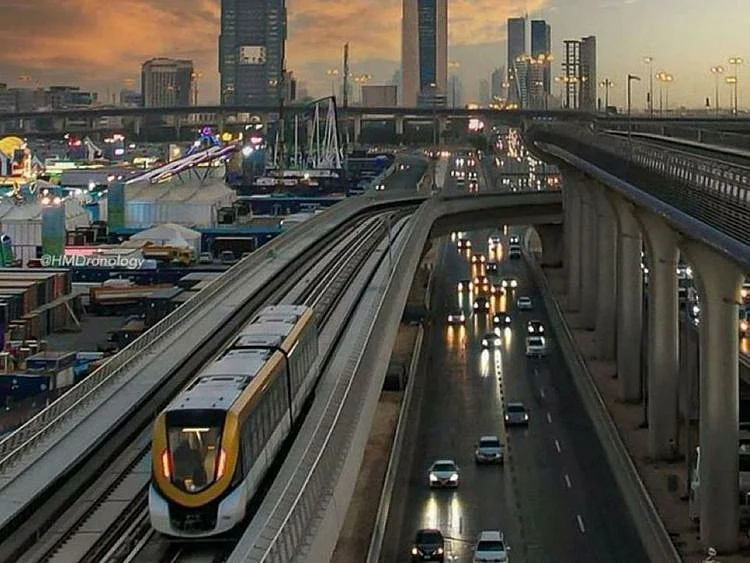Dubai: The Riyadh Metro, the Middle East’s largest public transport system and the world’s longest driverless train network, has officially begun operations on Sunday, December 1.
Stretching across 176 kilometers with 85 stations, the project aims to ease traffic congestion in the Saudi capital by up to 30 per cent, according to the Royal Commission for Riyadh City.
The metro’s phased rollout starts with three lines:
• Line 1 (Blue Line): Al Olaya-Al Batha Road
• Line 4 (Yellow Line): King Khalid International Airport Road
• Line 6 (Purple Line): Abdulrahman bin Auf and Sheikh Hassan bin Hussein Roads
Two more lines — Line 2 (Red Line) and Line 5 (Green Line) — will launch on December 15, with the final Line 3 (Orange Line) on Madinah Road opening January 5, 2025.
The launch also introduces the Darb app, a digital tool to streamline travel, offering route planning, ticket purchases, and real-time updates. “Darb is a cornerstone in creating smarter mobility across Riyadh,” said Maher Shira, acting director of digital infrastructure for the project.
Part of Saudi Vision 2030, the Riyadh Metro is designed to reduce reliance on cars and promote sustainable urban growth. Officials see it as a transformative step to improve mobility and quality of life in one of the world’s fastest-growing cities.
Worsening road congestion
The partial launch couldn't come at a better time for Riyadh, where the difficulty of dealing with traffic often dominates conversations among those living, working and visiting. The capital has faced worsening road congestion in recent years, with vast construction underway at a time when more people are moving to Riyadh or traveling to the city for business or leisure.
The city, which is due to hold the World Expo in 2030 and may host games for the FIFA World Cup in 2034, is at the forefront of Crown Prince Mohammed bin Salman's drive to diversify the Saudi economy away from oil.
The kingdom's goal is to grow the Riyadh population to about 10 million by the start of the next decade, from around 8 million now, Bloomberg has reported.
Saudi Arabia is also working to transform itself into one of the world's most visited destinations. It aims to more than double the number of travelers from abroad by 2030 to 70 million, compared with 27 million last year, and has said it plans to spend close to $1 trillion on tourism over the next decade.
Riyadh's metro is set to have the capacity to transport more than 3.6 million passengers a day when it is completed, according to the RCRC. The project was launched in 2012 and initially set to open in 2018, but faced years of delays.
Real estate consultant Knight Frank has estimated the budgeted cost of the metro is $35 billion. The system has six lines spanning 176 kilometers (110 miles), but a seventh is planned in a later stage.
Sign up for the Daily Briefing
Get the latest news and updates straight to your inbox
Network Links
GN StoreDownload our app
© Al Nisr Publishing LLC 2026. All rights reserved.
